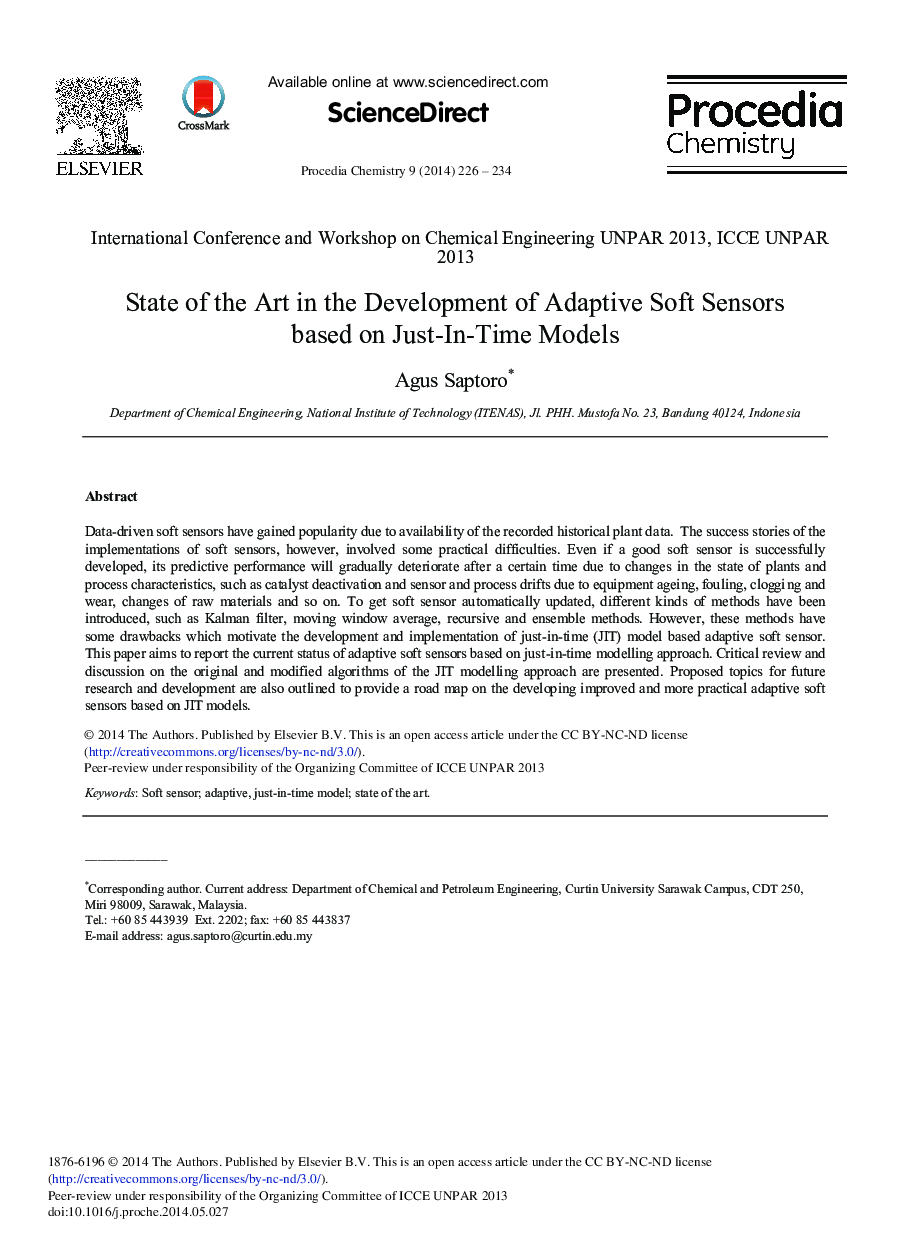| Article ID | Journal | Published Year | Pages | File Type |
|---|---|---|---|---|
| 240035 | Procedia Chemistry | 2014 | 9 Pages |
Data-driven soft sensors have gained popularity due to availability of the recorded historical plant data. The success stories of the implementations of soft sensors, however, involved some practical difficulties. Even if a good soft sensor is successfully developed, its predictive performance will gradually deteriorate after a certain time due to changes in the state of plants and process characteristics, such as catalyst deactivation and sensor and process drifts due to equipment ageing, fouling, clogging and wear, changes of raw materials and so on. To get soft sensor automatically updated, different kinds of methods have been introduced, such as Kalman filter, moving window average, recursive and ensemble methods. However, these methods have some drawbacks which motivate the development and implementation of just-in-time (JIT) model based adaptive soft sensor. This paper aims to report the current status of adaptive soft sensors based on just-in-time modelling approach. Critical review and discussion on the original and modified algorithms of the JIT modelling approach are presented. Proposed topics for future research and development are also outlined to provide a road map on the developing improved and more practical adaptive soft sensors based on JIT models.
